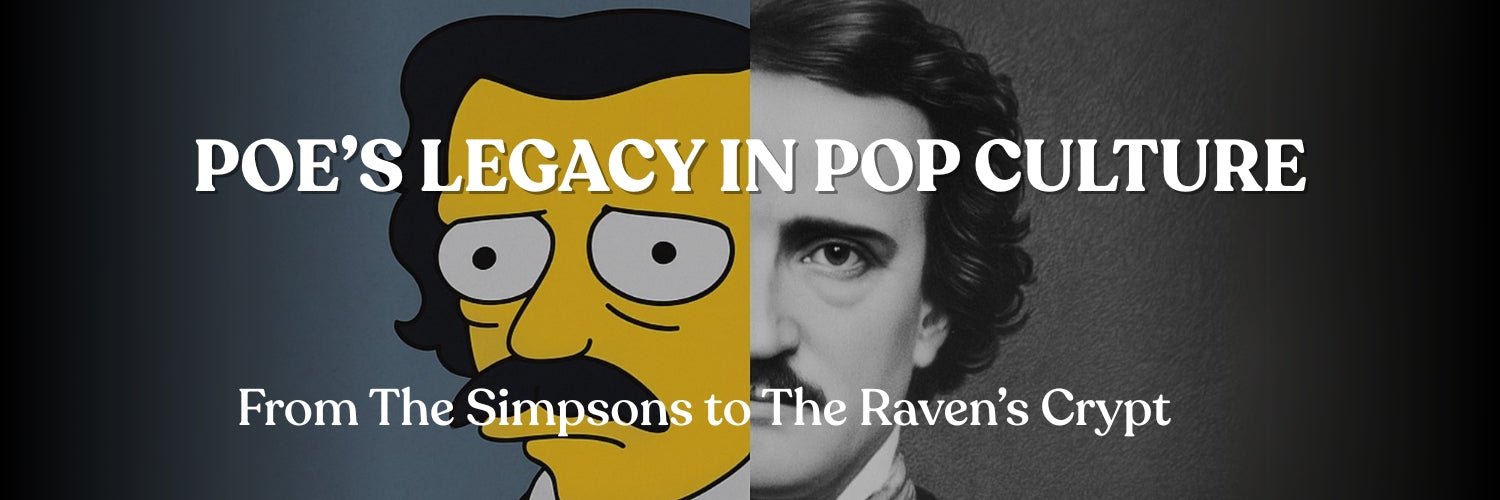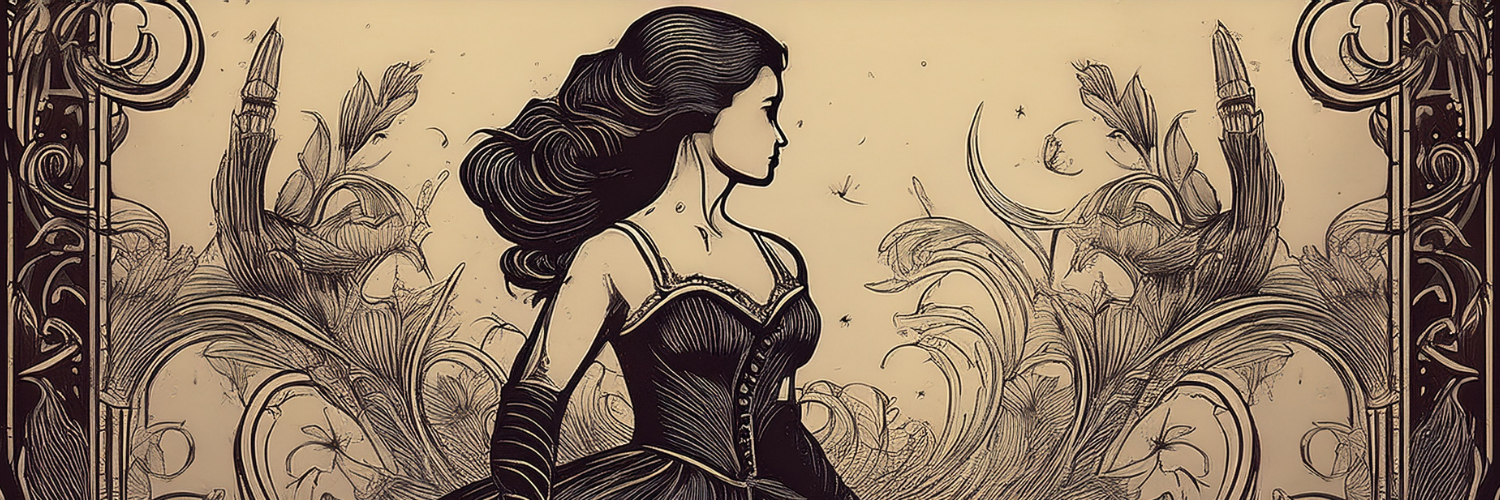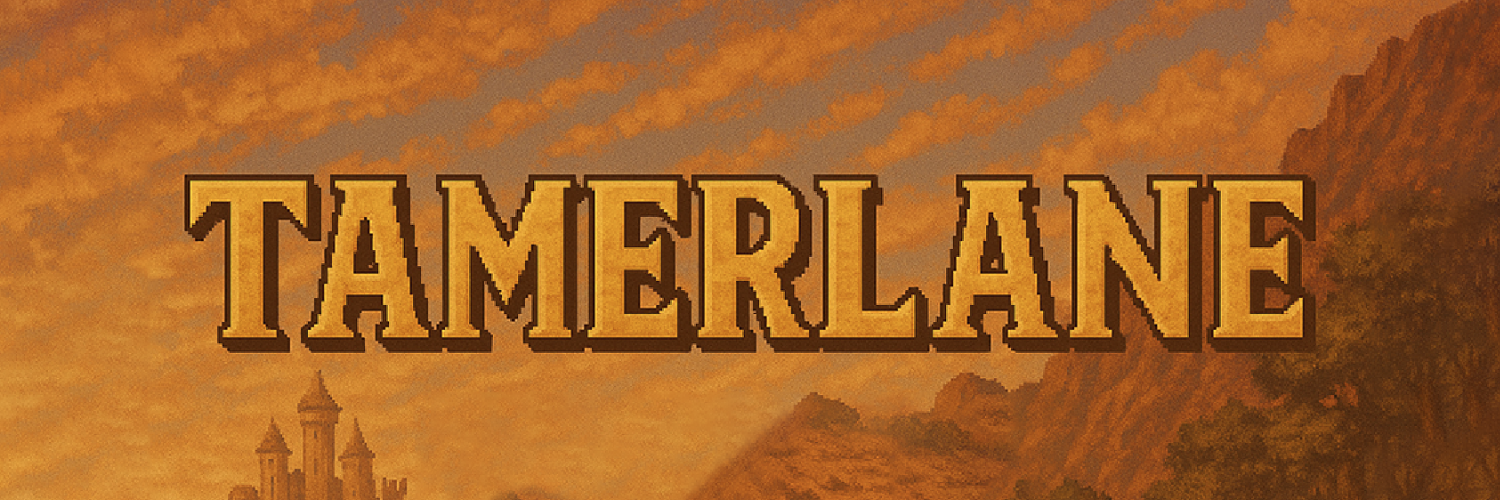Poe’s Legacy in Pop Culture: From The Simpsons to The Raven’s Crypt

Words have no power to impress the mind without the exquisite horror of their reality.”
—Edgar Allan Poe
When Edgar Allan Poe penned “The Raven” in 1845, he had no idea his dark verses would still be alive—almost viral—nearly two centuries later. His tortured tales of madness, guilt, and the human psyche have bled into our books, our screens, our art, and even our fashion.
Pop culture has a way of discarding the old to make room for the new. But Poe? He haunts every generation in his own eerie way.
🕯 From Gothic Pages to Animated Parodies
Let’s start with one of the most unexpected places Poe appeared—The Simpsons.
In the very first Treehouse of Horror episode (Season 2, Episode 3), James Earl Jones lent his thunderous voice to a dramatic reading of The Raven, while Homer played the doomed narrator and Bart the mischievous raven.
It’s absurd. It’s hilarious. And yet… it works.
What this moment tells us is that Poe’s works are flexible. They can be bent into comedy, horror, education, or high art—and still retain their emotional core.
But The Simpsons wasn’t the only modern cartoon to flirt with Poe’s shadows.
Shows like South Park, Family Guy, Courage the Cowardly Dog, and Scooby-Doo! have all nodded to Poe’s eerie spirit. The line between parody and tribute is often thin—and Poe’s name keeps popping up because his themes are just that universal: grief, paranoia, death, lost love, guilt.
🎵 Poe in Music: From The Alan Parsons Project to Iron Maiden
Even musicians can’t resist tapping into his melancholy magic.
In 1976, progressive rock band The Alan Parsons Project released Tales of Mystery and Imagination, a concept album inspired entirely by Poe’s stories. The record even includes a narrated intro by actor Orson Welles.
Metal legends Iron Maiden took inspiration from Poe’s “Murders in the Rue Morgue” for a track of the same name. And for more modern listeners, Lou Reed’s 2003 double album The Raven was a deeply experimental, literary take on Poe’s works featuring Willem Dafoe, Steve Buscemi, and Laurie Anderson.
It’s clear: Poe doesn’t just inspire horror stories. He’s left a permanent imprint on culture—high and low, past and present.
🎬 Lights, Camera, Poe
From the silent film era to Netflix originals, Poe’s influence in cinema is vast. You’ll find echoes of his obsessions in the psychological horror genre—from Alfred Hitchcock’s Psycho to modern films like The Lighthouse (2019), which feels ripped from the pages of The Fall of the House of Usher.
More recently, Mike Flanagan (creator of The Haunting of Hill House and Midnight Mass) adapted Poe’s The Fall of the House of Usher into a darkly satirical Netflix series in 2023. It reimagined Poe’s stories in a modern, twisted family dynasty—brilliantly bridging 19th-century decay with 21st-century dysfunction.
And who could forget the dozens of direct Poe adaptations? Vincent Price starred in multiple 1960s films inspired by Poe’s tales, including The Pit and the Pendulum and The Masque of the Red Death, cementing Poe’s place in cult horror cinema.
🕯️ The Raven’s Crypt: Wearing Poe in the Modern World
Fast forward to today, and Poe is still—literally—being worn on our sleeves.
At The Raven’s Crypt, we’re not just creating merch. We’re building a bridge between the timeless words of Poe and the personal style of modern readers and horror fans.
Our Men’s Collection and Women’s Clothing feature graphic tees inspired by classic quotes, haunting scenes, and the gothic mood that Poe practically invented.
For the walls? Our canvas prints and posters bring the darkness home in subtle, sophisticated ways. Not Halloween kitsch—but art for those who find beauty in shadows.
And of course, Poe’s spoken word vinyls—like our Fog of Madness edition—let you experience his tales as they were meant to be: spoken aloud, alone, in a quiet room, candlelit and still.
📚 Why Poe Still Speaks
So why does Poe endure?
Because his stories don’t age. They aren’t bound to any one moment in time. They’re human at their core—about longing, despair, fear, guilt, beauty, and the unknowable nature of death. Every generation finds something new in him because he speaks directly to the soul.
Even his critics (and there were many) couldn’t deny the rhythm of his prose or the weight of his words. He’s been called a drunk, a genius, a madman, a visionary. But perhaps above all—he’s become a mirror we hold to our darker thoughts, a voice for those who find beauty in melancholy.
💀 From Page to Pop, Poe Lives On
From The Simpsons to vinyl records, from minimalist tees to streaming horror—it’s clear Poe’s shadow stretches long. He’s part of our culture’s language now. His imagery. His rhythm. His obsessions.
At The Raven’s Crypt, we’re just one of many echoes—but we’re proud to be part of the chorus.
So the next time you see a raven, or hear a line about “beating hearts beneath the floorboards,” know this: Poe is still here.
Not screaming.
Just whispering.
Nevermore.











